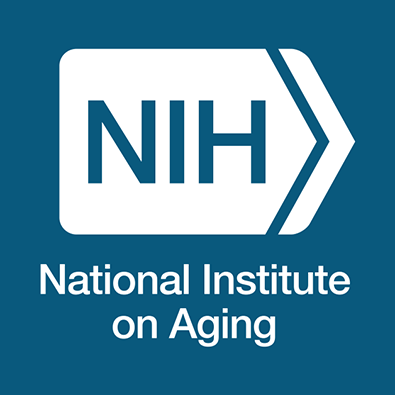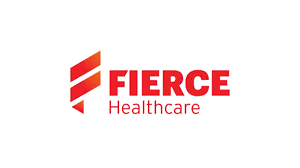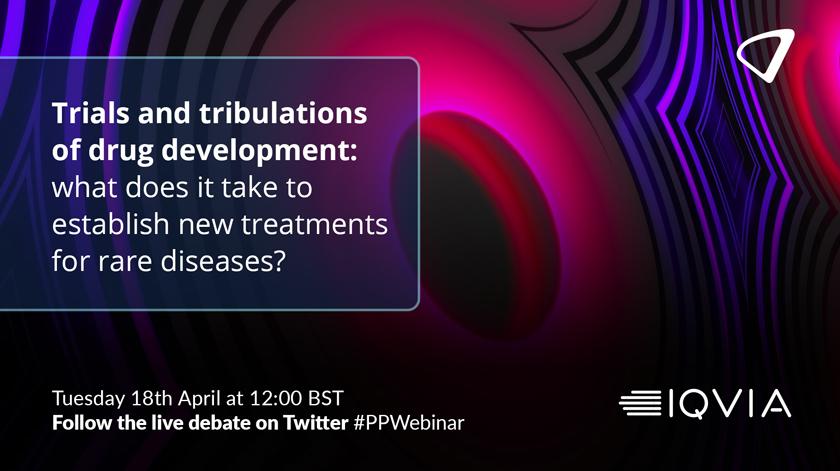How to assess the quality of AI output when structuring unstructured medical data
Looking to empower your organizations with high quality patient data? Human abstraction has long been considered the gold standard for extracting high quality information from EHR data. With the rise of NLP, large language models, and machine learning, the question becomes: how should we evaluate these new technologies against the traditional abstraction methods?
Partnering with Disease Registries: The Value and Impact for Real-World Evidence Generation
In this webinar, Evidera experts present guidance on why strong connections with registry groups and stakeholder populations are important for generating relevant real-world evidence to advance treatments.
How Digital Health Can Empower Cancer Patients
The International Agency for Research on Cancer (IARC) published a report called "Global Cancer Observatory" which shows that in 2020, almost 20 million new cancer cases were reported worldwide, leading to almost 10 million deaths. The prevalence of cancer worldwide over a five-year period exceeds 50 million cases. According to the same report, by 2040, the number of new cancer cases per year is expected to reach 30.2 million, representing a 57% increase compared to 2020.
Journal Club: “Benchmarking Changes And Selective Participation In The Medicare Shared Savings Program”
The centerpiece of the Health Affairs Journal Club meeting in May is, “Benchmarking Changes And Selective Participation In The Medicare Shared Savings Program.” The authors of the study found that since the 2017 introduction of regional spending into the Medicare Shared Savings Program (MSSP) benchmarks, participation incentives were radically altered, favoring the participation of Accountable Care Organizations and practices with lower baseline spending in their region compared to others. These changes suggest additional costs for the program, and the need for reforms. On May 10, please join author Peter Lyu of RTI International, for a detailed discussion of the paper’s data, methods, and policy conclusions. Health Affairs Senior Editor Laura Tollen will host.
Improving Patient Outcomes: AI-Based Phenotyping for Diagnosis, Treatment, and Clinical Trials
Join a panel of OM1’s clinical experts in cardiometabolic disease, immunology, and mental health as they explore how Artificial Intelligence (AI) can find phenotypic patterns and unlock insights hidden in real-world data.
How Cerner Enviza Uses Clinical Data to Drive RWE Decisions
Experts from Cerner Enviza provide a high level overview on utilizing Electronic Health Record (EHR) data to support Real World Evidence (RWE) studies.
Cracking the Code: When and How to Validate ICD Algorithms for RWE
Experts from SickKids, Genentech, Penn Medicine, and PHAR deliver a high level overview on validation of code algorithms for Real World Evidence (RWE)
Optimizing Real-World Evidence for Maternal and Neonatal Outcomes
Experts from health system innovators (C-Path), patients (PreemieWorld), healthcare payers (Carelon Research (formerly HealthCore) & Elevance Health (formerly Anthem)), and industry (Bayer) provide insights into improving neonatal outcomes using RWE.
How Literature Review Automation and Efficient Processes Streamline RWE HEOR Studies
Literature reviews are an essential element in Real World Evidence (RWE) HEOR studies that impact patient care, policy development, and healthcare decision making.
The role of patient-centric technologies & tokenization in RWE studies
Join the Castor team on the 3rd May 2023 with Aaron Berger from UBC & Ryan Moog from Datavant where we will dive deep into all things RWE, patient-centric technologies and the role of tokenization in clinical trials. You will hear about RWE case studies from the experts, learn new trends in the adoption of DCTs and how the role of patient-centric technologies & tokenization can contribute to successful RWE studies.
Closing the gaps of getting data to make decisions
We’ve all seen the studies showing data-driven organizations grow faster, are more profitable, and have a faster time to market. Why does gaining insights from data seem to take so long? In this webinar, we will review practical and successful approaches to executing on a doable data strategy.
Driving value from healthcare data: How integrated cloud-based data is foundational to drive enterprise change
In this webinar presented by EXL Health, you’ll hear engaging discussions from industry leaders on how healthcare organizations can harness the power of data to achieve a sustainable business advantage. Centered around the building blocks of data-led value creation, cloud enabled solutions, and enterprise architecture, you’ll discover the steps needed to turn your data into a trusted, strategic asset.
Keeping up with demands for healthcare outside of the hospital: Critical ways tech supports the distributed care model
Patients have been very clear: They want care that is convenient and accessible, personalized and streamlined — and often, delivered outside of the hospital. By 2025, expenditures on in-home care services for Medicare fee-for-service and Medicare Advantage beneficiaries could reach $265 billion, creating new challenges and opportunities for the technology that powers the distributed care model.
Advancing identity data management for digital engagement: How leading organizations are doing it
Siloed systems, data and processes are stalling digital transformation. For healthcare organizations to truly gain a 360-degree view of their patients and providers, critical data currently scattered across various systems needs to be brought together in one place.
Reducing the Impact of Emerging Macroeconomic Pressures on Clinical Trial Supply – Session 2
Join IRT industry veteran and drug supply expert Stefan Dürr as he discusses how to reduce the impact of both traditional and emerging macroeconomic pressure on clinical trial supply. Be sure to stay for the live Q&A at which point you’ll have the opportunity to present Stefan with your biggest drug supply challenges.
Notice of Pre-Application Webinar for RFA-AG-24-009, “Alzheimer’s Disease (AD) and AD-Related Dementias (ADRD) Real-World Data Platform (U54 Clinical Trial Optional)”
RFA-AG-24-009 invites applications for the Alzheimer's Disease (AD) and Alzheimer's Disease-Related Dementias (ADRD) Real-World Data (RWD) Platform initiative. This Platform aims to transform the AD/ADRD research enterprise by serving as a central hub of research access that seeks to: 1) improve applicability and generalizability of findings through larger datasets that include more diverse populations; 2) capture more complete information through linking a variety of data sources; 3) increase the speed at which scientific questions can be answered; and 4) improve researchers' ability to answer questions that cannot be feasibly or readily answered via clinical trial.
From Challenges to Opportunities: Navigating the EU MDR as a Medical Device Manufacturer
The European Union Medical Device Regulation (EU MDR) governs the production, distribution of medical devices in Europe, and compliance is mandatory for companies who wish to sell medical devices in European markets. These regulations have significant implications across the medical device product lifecycle including product design & development, commercialization and post-market surveillance.
Impact of the 2023 CMS Prior Authorization Rule
The Centers for Medicare and Medicaid Services (CMS) has proposed a new rule for improving patient and provider access to health information and streamlining processes related to prior authorization for medical items and services. It is key for all payers and providers to stay up-to-date on all the latest information in order to be fully prepared. Prior authorizations are intended to manage high-quality care, yet existing prior authorization processes have failed to deliver efficiency and scalability. Join us for this important one-hour discussion to explore what improvements are being mandated, the latest solutions available for eliminating inefficiencies, how to yield tangible improvements for both your organization and your partners, strategies to implement now to ensure compliance, and more.
Connecting Real-World Data and Domain Expertise to Enhance Trial Design and Planning
The clinical trial landscape has evolved in such a way that it's more challenging to find sites and patients than ever before. Data and analytics combined with deep therapeutic and operational expertise can bring therapies to patients faster. In this webinar, therapeutic and data science experts will discuss how real-world and clinical trial data inform the end-to-end clinical development strategy.
What Every Researcher Needs to Know About Using Medicare Data for Real World Evidence
Join three panelists who provide a practical overview of how and why to use data from Medicare for real world studies.
Medicare Part D: Price Negotiation Panel Discussion
Hear expert panelists bring their perspectives on critical issues around support for Medicare Part D products' fair market prices.
Ushering in the new era of payvider integration
The CVS- Oak Street Health deal is just the latest example of major players in health care expanding their reach and Payvider capabilities. Clearly this is a tipping point for providers and payers to gain more control to deliver high-quality, cost-effective, consumer-centric care.
Trials and tribulations of drug development
The webinar will highlight the multiple steps required to develop new treatments for rare diseases, provide examples of illustrative clinical trial studies, explore new methodologies, such as cell-based therapies, and look towards the future for emerging opportunities to transform the lives of those affected by rare genetic disorders.
Pairing quality genomic data with longitudinal patient records
Sure, you've used claims and electronic health records in your research. But have you ever explored linking phenotypic and genomic or other -omic data to assess the full view of the patient journey? In this fireside chat with experts from Optum Life Sciences and DNAnexus, learn how longitudinal, linked data sets enable life sciences companies to discover new druggable targets, identify potential treatment populations, understand the genetic testing landscape and barriers to access, and more.






























